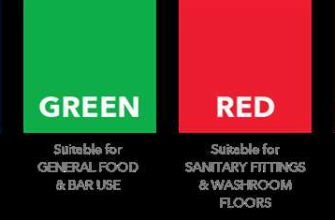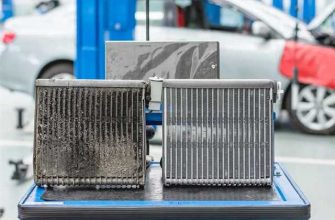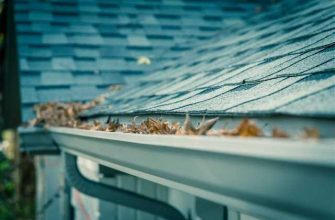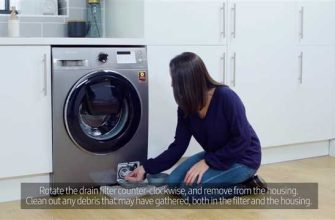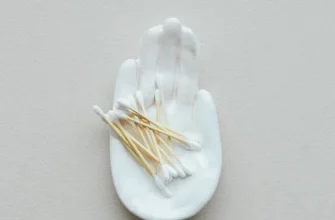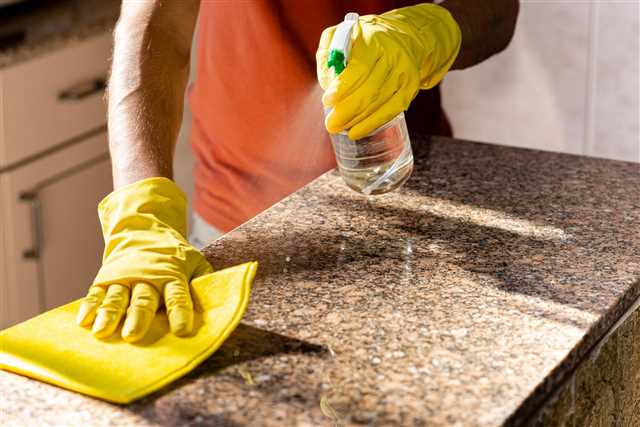
Granite countertops are a popular choice for kitchens and bathrooms due to their durability and elegant appearance. However, it is important to properly clean and maintain granite surfaces to ensure they remain in pristine condition for years to come. In this article, we will explore the best methods and products for cleaning granite countertops, as well as how to disinfect, remove water stains, and shine granite surfaces.
When it comes to choosing a cleaner for granite countertops, it is important to use a product specifically designed for this type of surface. Avoid using harsh chemicals or abrasive cleaners that can damage the granite. Instead, opt for a gentle cleaner made specifically for granite, which can effectively remove dirt and grime without causing any harm.
One popular natural cleaner for granite surfaces is a mixture of water and vinegar. This simple solution can be used to disinfect granite countertops, removing bacteria and germs that may be lurking on the surface. Simply mix equal parts water and vinegar in a spray bottle, then spray the solution onto the countertop and wipe clean with a soft cloth.
In addition to vinegar, baking soda can also be used to clean granite countertops. Baking soda is a natural abrasive that can help remove tough stains and odors from the surface. To use, create a paste by combining baking soda with a small amount of water. Apply the paste to the stain, scrub gently with a soft cloth or sponge, then rinse thoroughly with water.
- How to Clean Granite Countertops
- 1. Use a Gentle Cleaner
- 2. Avoid Acidic Cleaners
- 3. Clean up Spills Immediately
- 4. Use Warm Water and Mild Soap
- 5. Avoid Scrubbing with Abrasive Materials
- 6. Seal Your Countertops Regularly
- 7. Disinfect with Isopropyl Alcohol
- What is the Best Cleaner for Granite Worktops?
- Safe Cleaners for Granite Worktops
- What Cleaners to Avoid
- Tips for Cleaning Granite Worktops
- What Should You Not Clean Granite With?
- Is Baking Soda Safe to Clean Granite?
How to Clean Granite Countertops
Granite countertops are a popular choice for kitchens and bathrooms due to their durability and sleek appearance. However, it’s important to properly clean and maintain them to keep them looking their best. Here are some tips on how to clean granite countertops:
1. Use a Gentle Cleaner
When it comes to cleaning granite countertops, it’s best to avoid harsh chemicals and abrasive cleaners. Instead, opt for a gentle cleaner that is specifically designed for use on granite surfaces. These cleaners are pH-neutral and won’t damage or dull the granite.
2. Avoid Acidic Cleaners
Vinegar and other acidic cleaners should be avoided when cleaning granite countertops. These acidic substances can etch the surface of the granite and cause it to lose its shine. Stick to pH-neutral cleaners to keep your granite looking its best.
3. Clean up Spills Immediately
Granite is a porous material, which means it can absorb liquids if left sitting on the surface for too long. To prevent staining, it’s important to clean up spills immediately. Wipe up any spills with a soft cloth or paper towel, and then clean the area with a gentle granite cleaner.
4. Use Warm Water and Mild Soap
If you don’t have a specific granite cleaner on hand, you can clean your countertops with warm water and a mild dish soap. Mix a few drops of dish soap with warm water, dip a soft cloth or sponge into the mixture, and gently scrub the granite surface. Rinse with clean water and wipe dry.
5. Avoid Scrubbing with Abrasive Materials
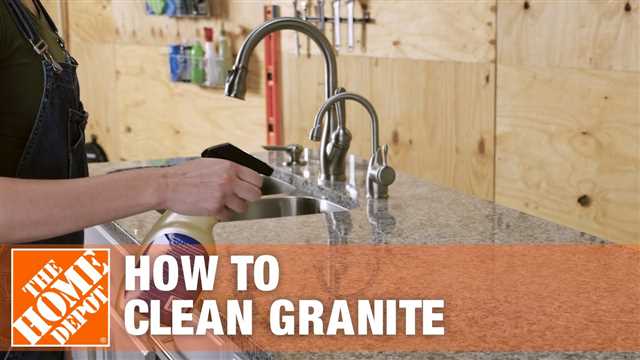
To prevent scratching the surface of your granite countertops, avoid scrubbing with abrasive materials like steel wool or scrub brushes. Opt for a soft cloth or non-abrasive sponge instead. Gentle, circular motions will help to remove any dirt or grime without damaging the surface.
6. Seal Your Countertops Regularly
Granite countertops should be sealed regularly to protect them from stains and damage. You can check if your countertops need to be sealed by pouring a small amount of water onto the surface. If the water beads up, your countertops are well-sealed. If the water soaks into the granite, it’s time to reseal. Follow the instructions on the sealer product for best results.
7. Disinfect with Isopropyl Alcohol
If you want to disinfect your granite countertops, you can use isopropyl alcohol. Mix a 50/50 solution of water and isopropyl alcohol in a spray bottle and generously spray the countertops. Let it sit for a few minutes, then wipe clean with a soft cloth or sponge. This will help to kill any bacteria or germs on the surface.
By following these simple cleaning tips, you can keep your granite countertops looking beautiful and extend their lifespan. Remember to always use gentle cleaners, avoid acidic substances, and clean up spills immediately to maintain the shine and durability of your granite surfaces.
What is the Best Cleaner for Granite Worktops?
When it comes to cleaning granite worktops, it’s important to use the right cleaner to avoid damaging the surface. There are a lot of different cleaning methods and products out there, but not all of them are suitable for granite countertops. So, what is the best cleaner for granite worktops?
Safe Cleaners for Granite Worktops
When choosing a cleaner for granite worktops, it’s important to look for products that are specifically formulated for this type of surface. These cleaners are designed to be gentle and safe, ensuring that they do not cause any discoloration, etching, or other damage to the granite. It is highly recommended to avoid using acidic or abrasive cleaners, like vinegar or lemon juice, as they can cause damage to the surface of the granite.
- Granite-specific cleaners: There are many granite-specific cleaners available on the market. These cleaners are usually pH neutral and safe to use on granite worktops. They effectively remove dirt, grease, and stains without causing any harm to the surface.
- Mild dish soap and warm water: In many cases, mild dish soap and warm water can be used to clean granite worktops. This gentle mixture is effective at removing everyday dirt and grime without causing any damage. Simply mix a few drops of dish soap with warm water and use a soft cloth or sponge to clean the surface.
What Cleaners to Avoid
It is important to avoid using certain cleaners on granite worktops, as they can cause damage or leave behind a residue. These cleaners include:
- Vinegar: While vinegar is a popular natural cleaning agent, it is too acidic for use on granite worktops. Using vinegar on granite can cause etching, dulling the surface over time.
- Bleach or ammonia-based cleaners: These harsh chemicals can damage the sealant on granite worktops, leading to discoloration and potential staining.
- Abrasive cleaners and scrub brushes: Scrub brushes or abrasive cleaners can scratch the surface of the granite, leaving it dull and vulnerable to staining.
Tips for Cleaning Granite Worktops
Here are some general tips to keep in mind when cleaning granite worktops:
- Avoid using excessive water: While granite is a durable material, excessive water can penetrate the surface and cause it to weaken or become discolored. Use a damp cloth or sponge instead of soaking the granite.
- Wipe up spills immediately: Spills should be wiped up immediately to avoid staining or etching. Even if your granite worktop is properly sealed, it’s best to clean up spills as soon as possible.
- Use a soft cloth or sponge: When cleaning granite worktops, use a soft cloth or sponge to avoid scratching the surface. Microfiber cloths are ideal for this task.
By using the right cleaner and following these tips, you can keep your granite worktops looking beautiful and clean for years to come!
What Should You Not Clean Granite With?
Granite countertops are a popular choice for many homeowners due to their durability and natural beauty. However, when it comes to cleaning and maintaining your granite surfaces, it’s important to be aware of what you should not use. While granite is a tough material, certain cleaning products and methods can damage its surface and lead to costly repairs or replacements.
1. Vinegar: Although vinegar is a natural cleaner, it is acidic and can etch the surface of your granite countertops over time. Avoid using vinegar or any other acidic cleaners on your granite surfaces.
2. Citrus Cleaners: Similar to vinegar, citrus cleaners are acidic and can cause damage to your granite countertops. It’s best to steer clear of cleaners that contain citric acid or lemon juice.
3. Abrasive Cleaners: Avoid using abrasive cleaners, such as scouring powders, on your granite countertops. These products can scratch the surface of the stone and dull its shine.
4. Ammonia-Based Cleaners: Ammonia-based cleaners, such as glass cleaners, are not suitable for cleaning granite. These cleaners can strip away the sealer and leave your countertops vulnerable to stains and damage.
5. Bleach: Bleach is a strong and harsh chemical that can cause discoloration and damage to your granite surfaces. Avoid using bleach or cleaners that contain bleach on your granite countertops.
6. Hydrogen Peroxide: Although hydrogen peroxide is a common household disinfectant, it can cause dulling or discoloration on your granite countertops. It’s best to use gentle disinfectants specifically formulated for granite.
7. Oil-Based Cleaners: Oil-based cleaners or polishes may make your granite countertops shine temporarily, but they can leave a greasy residue that attracts dirt and grime. Stick to cleaners specifically designed for granite surfaces.
8. Baking Soda: While baking soda is a safe and effective cleaner for many surfaces, it can be too abrasive for granite countertops. Avoid using baking soda to clean your granite surfaces to prevent scratching.
Remember, the best cleaner for granite countertops is a pH-neutral, non-abrasive cleaner specifically designed for granite. Always follow the manufacturer’s instructions and recommendations when cleaning your granite surfaces to ensure their longevity and beauty.
Is Baking Soda Safe to Clean Granite?
When it comes to cleaning granite countertops, it’s important to use the right products to avoid causing any damage. One common household product that many people wonder about is baking soda. Baking soda is a versatile cleaning agent that is known for its ability to remove stains and odors, but is it safe to use on granite?
Can you clean granite worktops with baking soda?
Yes, you can clean granite countertops with baking soda, as long as you use it correctly. Baking soda is a gentle abrasive that can help remove stains and residue without scratching the surface of the granite. However, it’s important to note that baking soda should not be used on a daily basis, as it can dull the shine of the granite over time.
What cleaners are safe for granite?
Aside from baking soda, there are a few other cleaners that are safe and effective for cleaning granite countertops. Here are a few options to consider:
- Mild dish soap and warm water: This simple mixture can be used for regular cleaning and disinfecting granite countertops.
- Isopropyl alcohol: This can be used to remove stubborn stains or sticky residue.
- Granite-specific cleaners: There are also cleaners specifically formulated for granite, which can be effective in removing stains and maintaining the shine of the surface.
How to clean granite countertops with baking soda?
If you decide to use baking soda to clean your granite countertops, here’s the best way to do it:
- Mix a small amount of baking soda with water to form a paste.
- Apply the paste to the stained area and gently scrub with a soft cloth or sponge.
- Rinse the area with water and dry it with a clean cloth.
Should you use vinegar with baking soda to clean granite?
No, you should not use vinegar with baking soda to clean granite countertops. While vinegar is a natural cleaning agent, it is acidic and can etch the surface of the granite. It’s best to stick to using baking soda or other granite-safe cleaners for cleaning and maintaining your countertops.
How to disinfect granite countertops?
To disinfect granite countertops, you can use a mixture of mild dish soap and warm water. Apply the mixture to the surface and let it sit for a few minutes, then rinse thoroughly with water and dry with a clean cloth. Avoid using bleach or harsh chemicals, as they can damage the granite.
How to shine granite countertops?
To maintain the shine of your granite countertops, it’s important to clean them regularly and avoid using abrasive cleaners. You can also use a granite-specific polish or sealer to enhance the shine and protect the surface of the granite. Make sure to follow the instructions on the product carefully.
How to clean granite countertops before sealing?
Before sealing your granite countertops, it’s important to clean them thoroughly to ensure that the sealant can bond properly with the surface. You can use a mild dish soap and warm water mixture to clean the countertops, or you can use a granite-specific cleaner. Make sure to dry the countertops completely before applying the sealant.
How to clean granite countertops with natural products?
If you prefer to clean your granite countertops with natural products, baking soda and water paste can be a great option. You can also use a mixture of vinegar and water (in small amounts) to clean and disinfect the countertops. However, as mentioned earlier, avoid using vinegar and baking soda together.
In conclusion, baking soda can be safe to use for cleaning granite countertops, as long as it is used in moderation and not combined with vinegar. Remember to always read and follow the instructions on the cleaning products you choose to use, and avoid using abrasive cleaners or tools that can scratch the surface of the granite.

